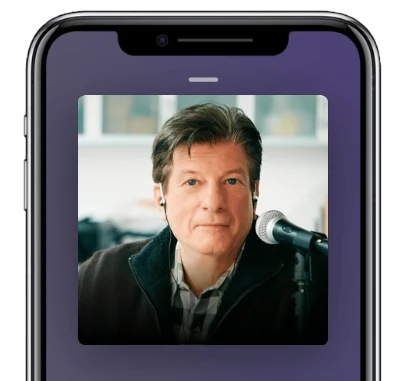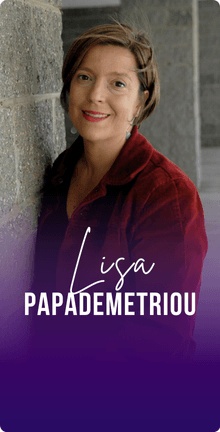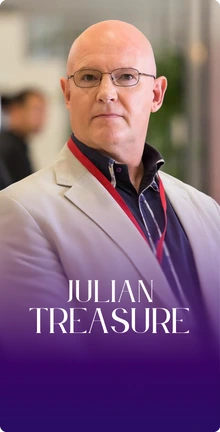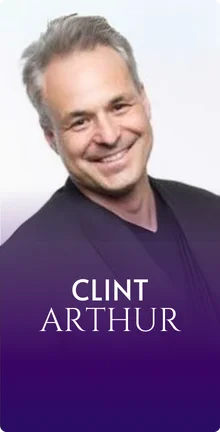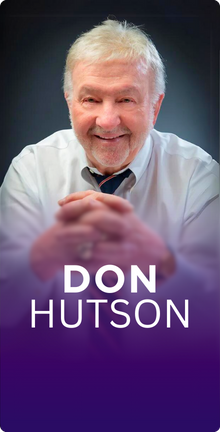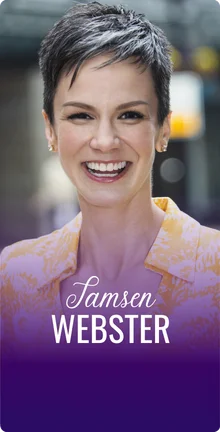In this Episode
- [00:39]Stephan introduces Garry Meier, an award-winning, nationally recognized radio and podcast personality. He is a Chicago-based radio personality who has been active in Chicago radio since 1973.
- [05:39]Stephan talks about his friend who watched one of Garry’s first shows with Steve back in the early days.
- [10:07]Garry shares why Ken Rutkowski, founder of the group METal, is one of the most valuable people in his life.
- [16:26]Stephan asks Garry why he keeps his personal life private and doesn’t talk too much about it on the radio or podcast.
- [21:10]Garry shares his techniques on how he can talk for four hours without having a script on the radio.
- [25:33]Garry gives tips and bits of advice based on the lessons he learned from podcasting.
- [29:53]Garry discusses a blog he wrote last August titled 2020: The Fall Will Probably Kill You, and its inspiration.
- [35:55]Stephan points out how the hardships in life are where you grow the most and evolve as a person.
- [39:50]Stephan and Garry share how they view the pandemic’s silver lining and what effect it has on people.
- [50:40]Visit Garry Meier’s website at garrymeier.com to learn more about him and listen to his podcast, Garry Meier Show.
Garry, it’s so great to have you on the show.
It’s just that I always feel like I do what I do, and I’m happy that accolades came along.
Thank you, Stephan, for the invitation. And not to be humble or whatever, it’s not false humility. All those awards are in a box, and I don’t even know where that box is. I’m not trying to get rid of them or shy away from those. I’m honored that I got them. It’s just that I always feel like I just do what I do, and I’m happy that those things came along.
Yeah. So let’s kind of rewind to the beginning. How did you end up getting paired up with Steve Dahl and having the Steve & Garry show? How did this all come about? Did you guys know each other beforehand? I don’t think you did, right?
I know you, and I talked about this before we taped the show here. We were talking about, is life random, is it kismet, is it a chance, what are your beliefs, and at one point or another, put your money on one of those things. I’m more or less putting my money on, and it seems like fate has played a hand most of the time in my career. What happened there was I was working all night at The Loop radio station that you mentioned. And the station in the meantime, about halfway into my run there about six months into my run, halfway into the year of it being sold, I heard that the station was going to change hands. And then I thought, in the past, when I’ve heard about a radio station being sold, they usually get rid of everybody, change formats, any combination of those things. But I thought I’m on the all-night show, I’ll be the last person they’re going to worry about. It’s not the most profitable day part of the radio station. So I’ll just sit here and see what happens.
In the meantime, Steve was doing a morning show at another station. He had come in from Detroit. And I would listen to him on my way home after I got off the air at 6 AM. He was just starting at his station, and I’d listened to him, and I thought, “Hmm, this is interesting. I’ve never heard any radio quite like this.” He was doing all these character voices. And I just filed it away and thought, “Okay, interesting.” And then his radio station changed format. And he left it went from rock and roll to disco, and he didn’t fit that format. So he left and then the consultant who was in charge of the radio station I was working at was hired by the new owners. They kept the format as it was, but they decided to hire Steve to do mornings. So he would start at six, I was ending at six, and knowing what I did about him from listening to a show before.
Isn't life all about the sandwiches? That's the best way to deal with life. Have a good sandwich and think about the best and worst moments you've witnessed. But no matter how much you've endured, you still get to have a good sandwich. Share on XOne morning as he was starting, I threw something out to introduce him to say, “Hey, get ready. It’s Steve Dahl’s first day,” or whatever that was. And I said something like I think it was, “Steve saw gasoline priced at 79.9 on the pump in his neighborhood. He’s going to talk about it.” And when he heard that, he was standing behind me before I went home he was going on. He thought that was an interesting thing to say. And after a couple of days, I threw a few more things out when we were transitioning. And then, by the fifth day, he said, “Stay, we’ll talk.” And then we did that for a week, and then the program director was listening and thought this is chemistry, and he put us together. And that’s how that worked.
Oh wow. What a great kismet, a good word, I think for that.
Did you live in Chicago? How did you know about this?
I lived in the summers in Chicago. During the school year, I was in Toledo. But I had friends and family in Chicago. I stayed with friends and visited my aunt. So I would go there every summer for four years and listen to the Steve & Garry Show.
And how old were you at the time?
I was a teenager, and I was probably 15.
Did your aunt say, “Whatever you do, do not listen to these guys. They’re evil.”
No, she didn’t even know anything about them. But my friends who I stayed with were big fans. I was just talking with her- her name is Pam- just the other day and she was at one of your very first shows. There were only a few hundred people there. It was you and Steve, and I forget where it was at. But she had told me, and it was amazing and hilarious. And it might have been your very first show together that you guys did.
First remote where she could attend?
Yeah.
We had Paul McCartney on the show several times via phone. I did meet him after that in person and it was pretty impressive. If you’ve ever met a person of that star quality, there’s an aura around them when they walk into a room.
We did a lot of those early on, where we’d go to a movie theater and then invite people in. And the show started at, I believe, five-thirty at that time, and there would be only a few hundred people. But you have to realize that this is five-thirty in the morning to get several hundred people to get up and come down to see a radio show. We were pretty excited to have that kind of following. And I remember one distinctly, I might be getting ahead of your questions here, but from that, you triggered something. We would do our show at the Carnegie Theatre in Chicago, and it was a movie theater. And one morning, we’re doing the show or about half an hour or 45 minutes into the show. And during the break, I go out to the lobby, and John Belushi is standing there. They were filming The Blues Brothers movie at the time. And they had just finished filming for the night. And he wandered over, and I said, “Hey, you want to come up and be on the show?” He said, “Sure.” So he walks in, and of course, at that time, if you know who this man is, this guy was one of the biggest people in show business. And he sat with us for about an hour on the show. And it was one of those things where you’re just thinking, wow, this is incredible. This is all coming together so well.
Amazing. So who was the very biggest guest that was ever on your show?
Well, it’s a hard question to answer in that a lot of people were big stars. But maybe they didn’t hit the same way other people did, where I became friends with certain people, I think we’re going to go with the list of if you’re categorizing people and celebrities, we had Paul McCartney on the show several times, and that was via phone. Now I did meet him after that in person, and it was pretty impressive. If you’ve ever met a person of that star quality, there’s an aura around them when they walk into a room. And now you know why they become superstars because of that aura. It’s hard to describe unless you’ve experienced it, but it’s there, I think. And I was a huge Beatles fan. So for me, that kind of connection to talk to him on the phone even was something that I would never forget. Now, there are other celebrities that I became friends with, the actor Brian Dennehy, who sadly passed away this year, he and I became friends after he came on the show. And then we kept in touch, and then we became very close friends. The comedian Richard Lewis and I became close friends. That kind of stuff happened because of the radio program where people come on the show, and I’d start some kind of conversation off the air, and then it developed into a very valuable friendship. Not because they were celebrities, but because of the kind of person they were. And I just was excited that I got to meet them through the radio station and become friends.
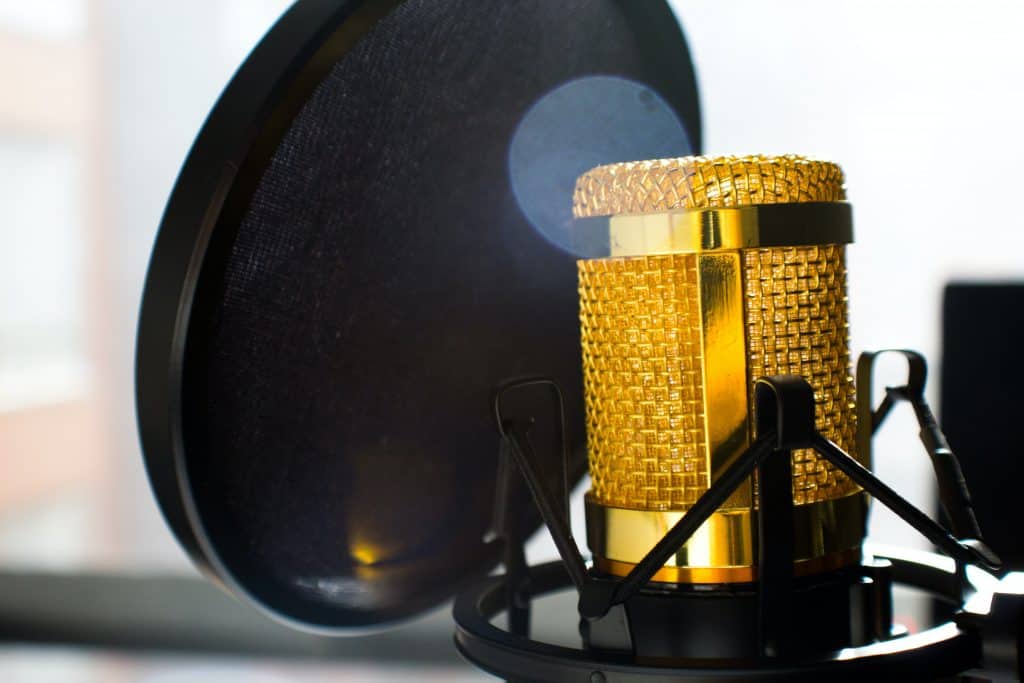
That’s awesome. So who’s been the most life-changing person that you’ve met because of the radio and the podcasting that you’ve done?
Life-changing? Wow.
Yeah.
That’s a tough one. I think when you establish a very deep friendship with somebody, you and I know somebody whose name is Ken Rutkowski, and he heads up this group called METaL. And we’re both part of that. I met Ken 30 years ago because he invited me on a radio show he was doing and we became friends. And then he went on to do these incredible things that he’s doing today. And I think as far as being a center, where I’m orbiting around his universe and meeting different people, including yourself, he’s probably one of the most valuable people because he’s so life-affirming.
The people involved in METal are very inspiring. To be part of that every week makes me feel like I’ve won the lottery.
Also, technically, this guy is, as far as my knowledge of technology, he’s light years ahead of me. And he would help me along because I’d be stumbling along trying to figure things out. I’ll never forget the day he goes, “Come on over to my apartment. I want to show you something,” and he opens his computer. Now, it’s hard to believe that computers didn’t have audio at one point, but they didn’t. This is before audio, and he said, “Listen to this,” he plugs a microphone into his computer, and he dials on the keypad, and he’s talking to somebody in Australia. I thought, “Oh, my god, this guy’s a wizard. He’s a witch. I don’t know, should I burn him?” Because he knew way before things were coming, he would already be plugged in, literally, to them. And he blew my mind over and over again. And with these, I don’t know, and if he calls them seminars, I think he’s very particular about what he calls these meetings that he has. But the people that are involved are very inspiring. And to be part of that every week, it just makes me feel like I’ve won the lottery, where I get to be with these people.
Yeah, he’s quite a connector and has so much knowledge and wisdom under his belt. He’s a great guy. Now, what would be an example of an interview or a show, just a morning show that went sideways and had some profound negative impacts, maybe even career-changing impacts for you?
I decided early on that when things go south, I have ten minutes of material. If things go well, I got almost nothing.
I decided early on that when things go south, I have ten minutes of material. If things go well, I got almost nothing. I’ve decided that I don’t look for things that go south, but when they do, I got material. That’s the fun stuff to work with. And there’s nothing in the last 30 years where I went, “Oh, man, that was bad,” because I enjoy even working my way out of the wreckage. If there is, in fact, wreckage, the fun part is trying to come out of it and not be too scorched in the process. But to answer it in a more specific way, we did this event in 79′ called Disco Demolition, where we blew up these disco records at a ballpark. And fans ran on the field and started fires, and it became quite the thing. And we went back on the air, and we were having fun with it. We were there at this radio station, The Loop, about two years from that big event. And the station decided that we were all of a sudden violating community standards. And they fired Steve, and I quit in solidarity.
Wow.
And that was one of those things where you’re not expecting it because we were probably the best-rated show on the station. And that turned out to be an interesting marker because I have been at radio stations where I had incredibly great ratings, and they pulled the plug, and there’s no reason, I don’t think they knew, they just did it. And there’s a series of this not only with me but with other people. And it’s a very weird business, and turned very weird. I think about 15 years ago. I got to enjoy it, and it zenith through the 80s and most of the 90s. But in the early 2000s, things turned, and it’s not the business that I enjoyed from before.
I've decided that I don't look for things to go south. But when they do, the fun part is trying to come out of it and not be too scorched in the process. Share on XNow, things have been interesting in your career. And one thing that I learned about Steve, I didn’t know when I was listening to you guys on the radio, but Pam told me that he was an alcoholic. And it was pretty obvious like he would show up drunk for the tapings and stuff, and I think he was pretty rip-roaring drunk that time that she saw you guys live. And I’m curious how that impacted your guys’ rapport and the show itself, and the longevity of the show. Was this problematic from your standpoint?
Oh yeah, because it ended the partnership. It eventually blew the whole thing up. You can only go so long in those situations before. It’s impossible to work with as far as I’m concerned. And yeah, he was a drinker from the beginning, but you thought, “Well, that’s going to solve its own situation.” And it’s not something that I’ve been concerned with right now, but it kept going and going, and then it gets tedious. And then you think, “Well, how long do I want to put up with this?” And then there are moments where it gets ugly, things are said, and the damage is done. And that’s the short explanation of it. But it did end the partnership of almost 15 years. And he would not admit to me that he was having a drinking problem. When I had the come to Jesus speech with him privately at the end, he pretty much said, “That’s not a problem.” And when they don’t even want to recognize it, there’s nothing else I can do.
I don’t know who discovered water, but it pretty much wasn’t a fish.
Right. Yeah, that’s the thing about alcoholism is that the folks who are in the middle of it don’t recognize it. They don’t see it. But you know, the expression, “I don’t know who discovered water, but it pretty much wasn’t a fish.”
And when he said that it wasn’t a problem, when I had that final meeting with him. After I left, he stopped drinking and said he’s not drinking anymore. And I was thinking, “Well if you thought it wasn’t a problem, why did you stop drinking?” And I guess in his head decided, “Well, it’s just better for me, health-wise.” But I don’t know if he ever admitted fully that it was an issue for anything. Whatever.
Yeah, I did do my research before this interview to see where things ended up with him. And apparently, he’s sober. And I saw some stuff like Alcoholics Anonymous and things that he was involved with. So yeah, I think he ended up clean, which I’m glad that that was the outcome. So one thing I’ve heard about you is you’re pretty careful not to talk too much about your personal life on the radio. And is that something that is just you protecting your privacy, or is it you don’t want to use a family as fodder for the material? Because you’re pretty funny, you’re quite funny, and so you don’t want to have family members be the butt of jokes. I’m just curious what the impetus was for that.
You made two statements there, and it is yes on both of those levels. I just don’t feel that they should be drawn into something where they don’t have a rebuttal a chance to, if they find it not suitable for them, they don’t have the microphone. And that’s not fair as far as I’m concerned; those who do it and are comfortable with it fine. They’ve made some pact with the people they’re doing it with, I think, and everybody seems to be okay with it. But then, if you’ve ever watched Howard Stern’s movie, Private Parts, they portray his first marriage where he’s doing all this stuff on the radio, and she’s upset when he comes home. And it doesn’t always land properly if you’re the one being talked about, and you’re listening to it on the radio, it’s a little uncomfortable, and I don’t want to put family members through that. So that’s something I’ve stayed away from.
Yeah, makes sense. There’s somebody that you worked with for a while, and I didn’t know about this person. But Elton Jim was his name, and you guys had a lot of chemistry and kind of rapport on the radio when you guys were doing stuff. And I just want to hear more about how that relationship kind of came about, and what were some of the lessons and some of the magic moments from that partnership.
The show basically ended there because I went into the podcast, and it was just a different rhythm.
Well, that was less of a partnership than the Steve & Garry thing. He was a hired hand and a contributor to the program but wasn’t a partnership in the true sense. He called the show one day and added into something I was talking about, and then I think he was a frequent caller. And I thought, well, he seems to have a lot of knowledge about show business, and I think I made it a feature where he would do show business talk once a week. And then I had this radio show come about where I thought he could add to that. And this radio station, they wanted you to work, as they say, “the board,” meaning you run your controls, you do the commercials, you fire up the microphone. And I always thought I’d rather not have to do that because I’m trying to think of what I want to talk about for four hours. And how about if I bring him in, and he could do that, and also contribute it was covering a couple of bases that I wanted covered, mainly the one of not running my own board. And he did that, and it worked. But then the station is one of those things where shows are doing great. Let’s pull the plug on it. And this is a great business. And I didn’t know what I was gonna do after that. So basically ended there because I went into the podcast, and it was just a different rhythm. And I set it up the way I’ve set it up where I didn’t need that kind of input. And that was that.
Gotcha. So why was his nickname Elton Jim?
Okay. Well, because he is a super Elton John fan, in fact, he’s seen Elton almost 200 times in concert. And he has a lot of Elton memorabilia, and he’s just obsessed with Elton John. So I thought as a nickname, I called him Elton Jim because it flowed just like Elton John. And he loved it because he loves Elton John. And by saying that, he’s a super fan. It was, I believe, MTV that did a program on the super fans of Elton John. And he was in the top five of VH1. One of those channels did it, and he was in the top five. And he’s got an Elton John pinball machine and all this other paraphernalia. And, oddly enough, no kids, so I don’t know who’s going to enjoy that when he’s gone.
Oh boy. So how do you figure out what to talk about for four hours without having a script or like a whole itinerary or agenda or anything? Do you just riff on whatever the morning’s news headlines were? Where do you get your material?
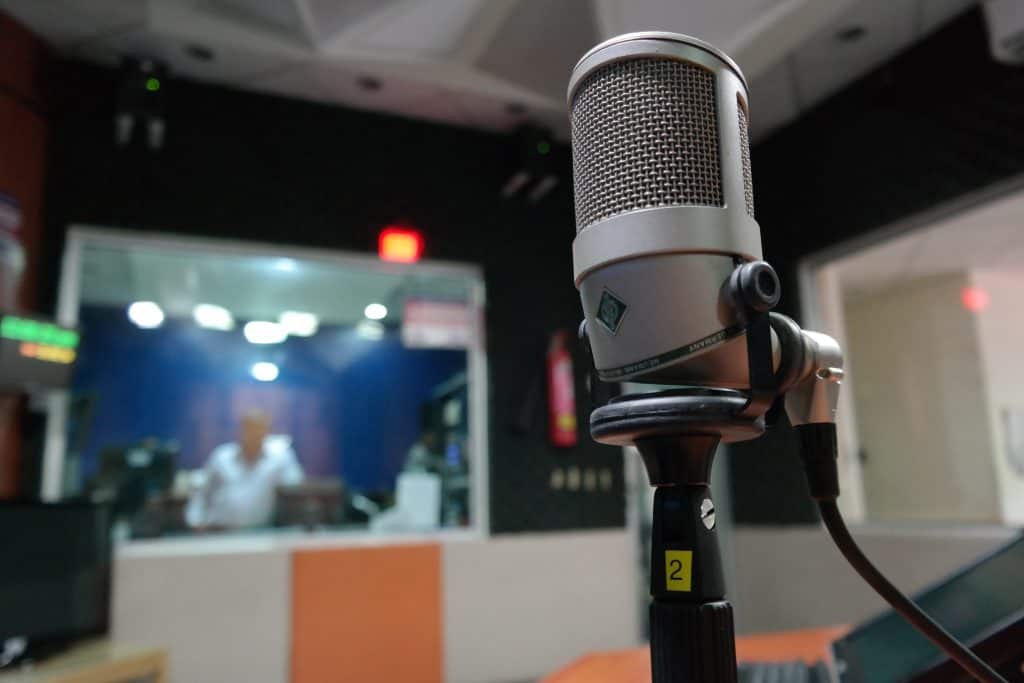
I think when I had a partner, we would know each other so well that we brought stories in our head to the show, and then started talking, and then we would volley back and forth that way. When I went on my own, and my producer would hand me stories to take into the studio, I’d look over them, and then I grab about ten that I thought I could play with. And on the radio, you’re constantly taking phone calls. So you have that input from the listener. And sometimes you’ll have a topic, they’ll open the phone lines up, they’ll call in, and then they’ll say something that takes you in another direction. And you start following that because that seemed interesting. And that’s the way the rhythm worked on the radio. On the podcast, I’m doing five shows a week, three of them are 30 minutes long, and two are an hour long. The two-hour-long shows are paid subscriptions. And it’s the same thing. My producer will send me stories, I’ll look at them, and then I’ll come up with some other stuff. And it’s a different format because you’re talking through the whole half hour or hour, there’s no stopping for news, traffic, weather, none of that radio format bs. And we just do it. And it just kind of flows in that direction. And I don’t have any phone calls because they’re taped, except I do a live show on Friday, where people can call in if they want. But the Monday through Thursday shows are taped, so I don’t have listener input that way. I look at texts and things, but not a live phone call. So it’s a different animal and a different muscle that had to be exercised to do the podcast, but I’m enjoying it because it’s a lot freer than being in a radio format. I just like the rhythm of it.
So you’ve been doing the podcast for how long?
Almost six years.
Six years. And is it as rewarding as being on the radio, or do you miss the radio more?
In radio, I had maybe two or three competitors. In podcasting, there are a million and a half podcasts. It’s like you’re in a deep pool and you have to try to pull yourself above that pool.
Okay, everything has a trade-off. No matter what you get, that you think is better, or a step up, it’s going to have a trade-off of something good in what you gave up. But you had to give it up. In this case, I had to give up the big audience that radio shows have if they’re successful. Because in radio I had maybe two or three competitors. In podcasting, there are a million and a half podcasts. So you’re in a deep pool, and you have to try to pull yourself above that pool. And that’s where the challenge lies. It doesn’t have the same revenue stream unless you can get to certain numbers. Yes, I miss the bigger audience and the revenue that would be available. But this is what I wanted to do now. I’m not opposed to doing a radio show podcast hybrid, and I think those two would work well together. And that’s what I’m kind of looking at right now to have both in concert, and one would feed off the other.
Right, kind of like a show, like Hidden Brain, for example, that’s on NPR on Sunday evenings, but it’s also on podcatcher apps, and people are probably as much consuming it via podcast as they are listening on the radio, I would imagine.
NPR has found a way to do podcasting. They have that down. And I applaud them for getting to where they have. And yeah, because they’ve got the radio shows going, and they’ve got that podcast rhythm going to. And it works well.
Yeah. And then Alex Bloomberg left NPR and started the StartUp podcast and the Reply All, and he created the whole Gimlet Media Podcast Network, which I think sold for something like 600 and some million dollars. I forget who bought that, was it Spotify or something?
Yeah, I think so.
Pretty impressive. He’s an impressive guy. So what would be some of the lessons that you have learned from podcasting that you want to share with our listeners? Because our listeners, of course, are podcast consumers, and what do you think would benefit them to know?
Well, I don’t know if I can add any benefit, as far as what they don’t already know. But I do know that podcast listening is different from radio listening. This is you listen to it when you want to listen to it. This is the way things have shifted over the years with consuming television and movies and everything else. It’s at your schedule that you take in these shows. And that’s the beauty of them. Plus, they’re kind of built for, say, a car trip or a plane trip where you put it in, and you listen to them, they go for a half-hour, hour, whatever they go for. They’re designed for that kind of listening. And radio is designed when you’re in your car, you push a button, you hear a segment, maybe they go to a commercial, you leave. And if you’re listening to a music station, you listen to a song, and they go to a commercial, you leave, you come back, whatever. This is more compact. And I think that appeals to a lot of people. It’s just that, as I said, there are a lot of choices. Now, having said that, there are a million and a half podcasts. Five hundred thousand of them are serial killer based, and they talk about serial killers. That’s what it seems like. And then 200,000 are gardening shows, and then it starts trickling down from there to general entertainment.
A lot of good relationships developed because of the radio program. When people come on the show, and then we'd converse off the air, it develops into a valuable friendship. Share on XI think a lot of these podcasts are hobbyists because the entry-level is low. Anybody and everybody have a podcast, and that’s what floods the pipeline. The challenge is, again, to pull yourself out above the hobbyists and everything else and come up with something unique, and a lot of people have done it. I find it to be the biggest challenge of this against radio. And if your listeners listen to a lot of them, that’s cool, but they found that it’s a small percentage of the shows that get listened to a lot. And it’s one of those things. I went to a convention a few years ago, and they were talking about podcasts versus radio listening. And they were going on and on about the listenership of radio is still strong and this and that. And I raised my hand, and I said. “Wait a minute. Radio has been around for 95 years. Podcasting is what? About ten years old, let’s say. You’re comparing apples and oranges here.” Yeah, if I had a 90-year head start, I hope I would be at a certain level that they are at. And podcasts are still to reach that level. We both know from this meeting we attended on Saturday that radio took 32 years to reach 50 million people, and Facebook took nine months to reach 100 million people. So that’s the way things are going now. This is how this flows.
Yeah. And what would you say is the differentiator or the value prop for listening to your show versus other podcasts? Because there are so many of them to choose from.
I focus mostly on a lot of this nonsense that we see day in and day out.
Well, I think I do something unique that a lot of other shows don’t do. I don’t do any politics. I focus mostly on a lot of this nonsense that we see day in and day out. And I crack wise on that. And I have a woman who does, well, our version of the news, it’s not the traditional news you would hear on a radio station. But she picks out some goofy stories, and then we riff on those. And it’s, I think, designed to make you feel good, laugh, whatever, in a sea of what has been a hellish year. But I would do this, no matter if it was a pandemic or not. My style is my style. And I didn’t do politics for the last four years, just because of the last four years, I’ve never done it. It’s not a cop-out, because oh, I don’t like what’s going on in Washington since 2016. I never did it. And I think I’m in step with people go. I’m exhausted by this. I don’t want to listen to another story about what’s going on with the election or whatever. And that’s where I come in where I don’t do that. And I focus on the silliness of just being on this planet.
Right. And you wrote a piece I enjoyed on your blog about 2020: The Fall Will Probably Kill You. That was back in August. And do you want to share some thoughts about that now that it was a few months past when you wrote that?
Okay, can you refresh me because I do a new blog every two weeks, and I remember the line? The line is from the movie Butch Cassidy and the Sundance Kid, and I think you’re referring to our situation in the pandemic. Anyway, in the movie, Butch and Sundance are pinned down by the posse, and they’re on the edge of a cliff. And their choices are to shoot it out or to jump into the ravine below that has maybe two feet of water. And those are your choices. And Paul Newman, his character, Butch, says to Sundance when Sundance says he can’t swim, “Don’t worry about it, the fall will probably kill you.” And at some point, they’re talking about this vaccination, and it’s going to be out soon, but will it be tested enough to know that it’s safe? And it’s a rock and a hard place situation where the COVID numbers are skyrocketing again. And what are your choices in life? Really? Take the best road you can take because the fall will probably kill you. I don’t remember the exact gist of that blog if you can refresh me.
Yeah, well, your first line was, “November 3rd could be the ignition point.”
I look up into the universe at night when I walk my dog into the sky, and I think we’re just a blip.
Yeah. Okay. I kept thinking, as things were boiling, no matter which way the election goes, and this could erupt, I was very happy to see there was no eruption. There’s still a lot of weirdness following the election. But so far, my predictions of eruptions, I thought there might be an eruption around June 1st because people have been out of work for months by that point and all of that. I’m fairly excited that we’ve been able to keep our wits about us. And this will straighten itself out as things usually do. And I look up into the universe at night when I walk my dog into the sky and look at all that’s going on there. And I think we’re just a blip. There’s nothing we can do. It’s already out of our hands, and we’re on this ball. It’s spinning around. And if the universe decides it wants to do something, it’s gonna do it, and we’re helpless on that level. So bring it down to what I can do, and that just enjoys every day. That’s all I have control over, and even that is not certain.
Yeah, the serenity prayer is what God grants me the serenity to accept the things I cannot change, the courage to face the things I can’t, and the wisdom to know the difference. Most of the things we can’t change that are out there in the world.
Exactly. Look at it. On March 13th, we hit a wall, and nobody predicted this. It’s where everything that you knew on March 12 was out the window, and still out the window for the most part. This is how quickly on a dime, things can change. And we act like we have all this time, and we can do whatever we want to do, and the way we’re doing it, and nothing is going to upset that. Here we are, it’s all upset, and we have to learn that it is fragile, and there’s nothing you can do to change something that’s beyond our grasp.
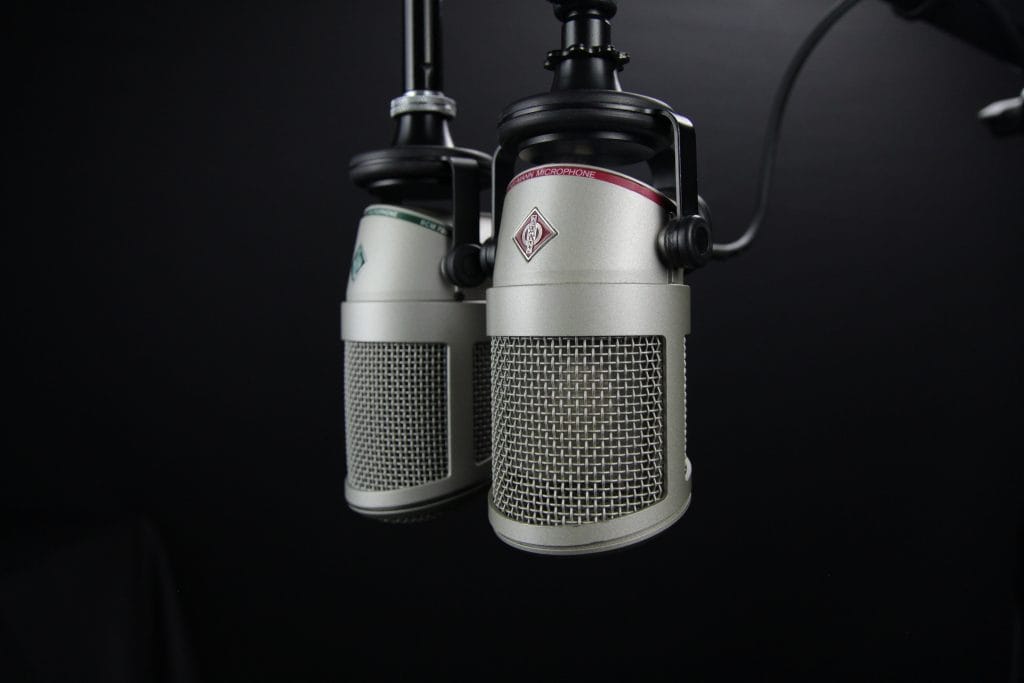
So what’s something that’s been challenging or a life-changing that you’ve had to address? Like, something maybe tragic or I don’t know, there’s just so many things out there in the world, and things can come hit us from behind when we’re at least expecting it and hit close to home too. I’m curious if there’s something that you want to talk about that you see now, maybe even as a gift after the fact.
I’ve always lived with the philosophy that nothing is guaranteed. And I think you’re better off instead of pretending that you have all of this locked down, that you can control and do this at that point, and it will move to that point. And yeah, you can make plans, but things could be monkey wrench. I go back to, again, our METaL conference. And one of the members announced recently that he has cancer. And you could tell in his face that he’s scared, and rightly so. And he was talking about how he had all these business things going on, and everything was looking bright. And then he gets the results back, and he finds he has cancer, and things he said changed now. All the business things are on the back burner, and now it’s about getting his health straightened out. That’s what I’m talking about, where it doesn’t matter how you’re going about things. There are unforeseen things that could disrupt those, and how do you manage those when they happen.
I can’t force things. It’s going to happen when it’s supposed to happen. I believe in that organic way of doing things.
I’ve been through enough, business-wise, where you have to go to a zen moment of, I can’t force something it’s going to happen when it’s supposed to happen. I believe in that organic way of doing things. I’m not saying I don’t do anything, and I’m just saying you try your best hope it works. If it doesn’t, put it in your energy into something else. That’s all you can do. And that’s only by the learning and doing and having the situations come up where you didn’t expect them and then dealing with those. Because I’ve had moments where I thought there’s no way this is going to change, and it changed on a dime. And I had to adjust. And I just figured, well, everybody goes through this. I don’t think anybody escapes this. I don’t think anybody gets a straight line of perfect through their life. I don’t know if I’ve ever heard of anybody that has had that. Maybe you have. Please share.
Not at all.
No, I don’t care who they are. The biggest movie star, whatever person you look up to, they’ve had their share of crap. And it’s universal.
Yeah. And the hard stuff is where you grow the most.
Exactly.
It’s not when you’re on an easy street where you’re evolving as a person.
No, it’s those challenges where you have to find that new muscle that gives you the strength to find something else or that you didn’t know you had that strength. You wouldn’t have found out if things kept going in the right direction or so-called “right direction” or the same way.
He who has his health has a thousand wishes, and he who does not has just one.
Yeah, there’s an Indian proverb, a very old one that goes something like, “He who has his health has a thousand wishes, and he who does not has just one.”
Yeah, it’s true. And as we’re running and doing, we kind of forget that all the time. And I’m wondering if post-COVID that this lesson will stick. And I say that because you remember 911 and we set on 912, well, we’re not going to put up with any nonsense anymore. We’re not going to get into stupid stuff. We’re going to be really on the important things. We’re going to stay with the important things. That lasted what? About three weeks? And we drifted right back to where–and maybe worse than we were pre-911. And I’m wondering if this one is going to stick because this is, I think, more brutal. We didn’t shut down after 911. People’s livelihoods weren’t entirely or much at all impacted. This is different. This is a lesson I think is going to stick.
So if you would look back on this time that we’re going through now, let’s say a decade into the future, what would you say is the biggest gift from this year? It’s been a tough, horrible hard year for many of us, but what would be a silver lining or a gift that you see out of this?
Podcast listening is different from radio listening. You listen to a podcast when you want to tune in to it. It's on your own schedule that you take them in. And that's the beauty of them. Share on XWell, I hope. And this one is a stretch that people would treat each other better. But the political scene in the United States is so torn and divisive. And to acknowledge a recent blog post, I have decided that I hope I’m wrong again, that we are now living in an alternate country. We have two different countries; a parallel country where you have a big group of people that believe in one thing, and people believe in another, and they ain’t getting together. And it ain’t gonna happen anytime soon. It just seems like we’re locked down on that. I’m hoping that that dissipates, and maybe it will in ten years. But I just don’t see it now, and that’s disturbing because, as they say, you’re better united than divided. And we’re very divided, and how much can be accomplished with this kind of division? You’re going to have people going at it. And you talk about Thanksgiving, the lead-up, and before COVID pretty much backburnered a lot of plans. I could have just seen people getting together and having a few drinks and then going at it because the election results would still be up in the air to some people. And that is the go-juice to get into fistfights and arguments. And these are with people that you normally get along very well with; friends, family, whatever I’m hearing of all these relationships that are completely shattered because of this political scene. That’s what I’m hoping, geez, in ten years, I hope it’s in a year. But certainly, in ten years, we had gone through this phase, and it showed its ugly head, and we decided that’s not the way to go. And it’s all calming down.
Yeah. But do you see that there’s a gift in this whole pandemic, and economic downturn and everything? Do you see that there is a silver lining here?
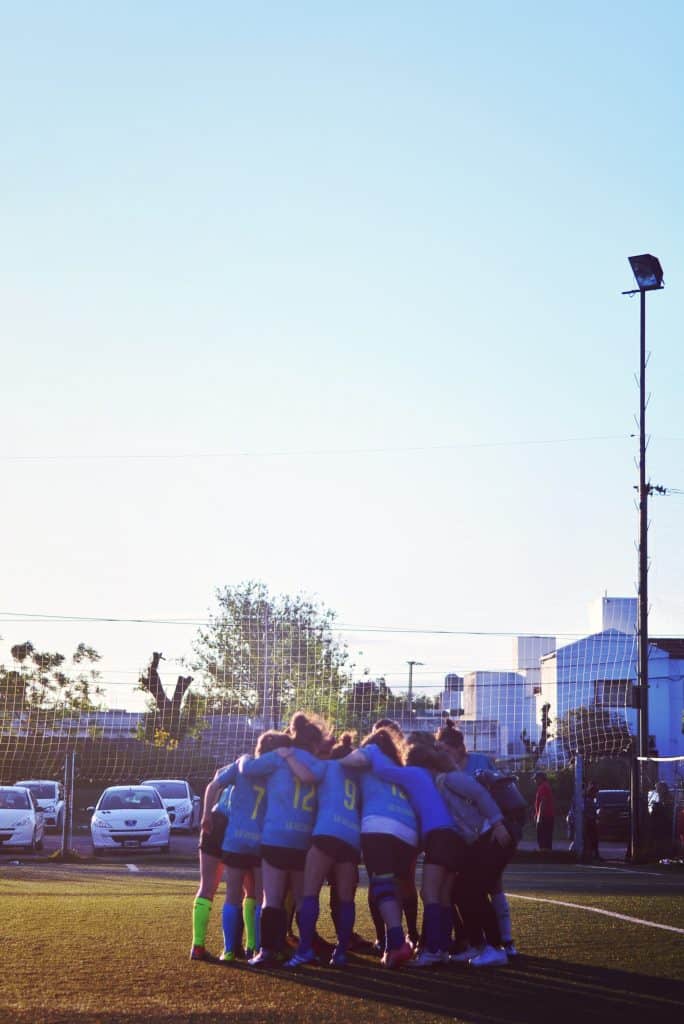
I do see those people out there that are helping other people. And I think yes, that is the core of humanity. We’re not at each other’s throats, and we do want to help each other. And I’m hoping that becomes the overall theme and the way we go about our lives. Yeah, I see that. I think we’re going to come out of this and appreciate all those weird little small things that we never thought we’d have to give up. Being with people, being in restaurants, being in theaters, being at concerts, those things that we just took for granted as we do. And now you long for the days when you watch a movie or TV show, and they’re at a restaurant, you go, “Oh, restaurants, I remember those.” And it’s weird. It’s funny, but it’s weird that that now, that little simple thing is gone for now.
Yeah. My wife and I used to love going to Trader Joe’s together to go shopping. And yeah, that, of course, went away with the pandemic and having to go in with masks. And in the early days, people were much more concerned about the virus potentially being on surfaces. And they are now, so every single item we had to wipe down before we put it in our fridge and stuff. And wow, the magic just disappeared from those nice moments.
And the early on shortage of toilet paper and paper towels where there was no connection to the virus to that. And you realize where people will react irrationally to something right away. And that’s concerning because what if things were serious, and what would people do? That’s the way I’m looking at this. And we’re going back and in the middle of at this point, probably toilet paper rationing, or paper towel, or whatever it is because people are hoarding again. After all, the COVID numbers are going up. No connection, but there it is.
Yeah. Right. It’s pretty weird. But people are irrational. I don’t know what else to say.
Yeah. You said it.
Yeah. So are there some poignant moments that you want to share that maybe you shared on the radio, about your dad or your mom? I think you did share a few things over the years about your parents. Any stories that you want to share now that you’ve shared before?
You’re probably aware because you’re a listener of my name theory, where certain names will forecast what happens to you or what you’ll end up doing. If you pay attention to that, you’ll see, “Oh, yeah, of course, that happened to them, because their last name was automobile accident or whatever.” I know that’s not giving you the direct connection that I’m talking about. Here, my parents’ initials are AM and FM. I was destined. Now, to your point about a poignant moment, I play this tape that my father made on Veterans Day every year. He recorded this about 37 years ago, at his kitchen table on his little Panasonic tape recorder. He was recording a moment from World War II. That he was recalling, he was in this battle on Christmas Eve during World War II, it’s about 13-14 minutes long, and he walks through the whole scenario. And it’s riveting and frightening to think of him. He’s probably 21 years old in this situation. And I play that, and the response is always very moving because people hear it. And some people say I was crying halfway through it because he thought he was going to die. And you just get a real moment of being in a war and what war is, which is hell. And I was so glad he had this tape. I have this tape now. And he’s dead, he’s been dead for almost 30 years. But I can share this with the listeners every year.
Things can change quickly. We act like we have all this time, and we can do whatever we want to do. Yet here we are, all upset and have to learn that life is fragile. There's nothing you can do to change something that's beyond your… Share on XI don’t know if we take it for granted as much. But certainly, after Vietnam, those veterans came back and were treated like nothing happened. And PTSD was finally discovered; nobody knew about that in World War II. I remember one day, my father was in bed, somebody slammed a door, he jumped up, he thought it was a hand grenade. And he was reliving a moment in the war, at that point. And when he had his heart attack, he was being rushed to the operating room. And my mother was next to him, and he turned to her and said, “Where’s the hand grenade?” He kept flashing back during those moments because those were the moments that scarred him. And these people that fight in these wars, I mean, they need any kind of assistance that we can give them. Because I can’t imagine what that’s like. I can imagine, but it probably doesn’t come close. So that is something that I cherish. My mother, I think I get a lot of my sense of humor from her because she’s kind of goofy in that sense. She says things that are pretty funny that I remember. And that combination of DNA is what made me do what I do, I believe.
Yeah. Cool. And have you heard any feedback from a listener who maybe had a breakthrough because they listen to that tape from your dad? Like, not just in tears like, “Wow, that was moving,” but somebody’s life was permanently changed for the better.

What I do hear is people who have family friends that were in World War II or Vietnam and were struggling. And they felt that they could connect because a lot of people that are experiencing this, and they didn’t feel alone, or had some way to think, “Wow, I heard my uncle tell me these stories. And he seemed like he didn’t have anybody to talk to, but obviously, other people have had this kind of trauma and are not alone. And I would get that.” Or, to extend that out a little bit over the years, get letters before the email from some listeners who were borderline suicidal or on their way to killing themselves and heard something that we said on the program. I said whatever that made them laugh, and that stopped the motion of killing themselves. That’s pretty powerful to have that kind of impact. You don’t know who’s listening and what their circumstances are. You’re in your room doing this, and it goes out. And everybody’s got their life spinning one way or another. And you don’t know exactly. Oftentimes, you never hear from the listener as far as how it impacts them. But hopefully, it gives them some kind of joy to pull them out of some situation that was pretty dark.
Yeah. So if somebody’s listening right now, and they’re feeling suicidal, this has been a rough year for many people, what would you tell this person?
Well, again, Stephan, I go back to our METaL conference. To say this conference is so riveting and strong that I pulled so much out of it. Recently, the host Ken Rutkowski, he does these surveys during the two-hour session. And he said, of the several hundred of us assembled, how many of you have contemplated suicide. Now, these are people that are accomplished and at the top of their game. 51% said they had thought about suicide, and even Ken was taken aback by that because he thought it would be much lower in that everybody there seems to have the brainpower to work through things. Therein lies the mystery of you don’t know what’s going on in people’s lives. And even those who are accomplished have moments of doubt or whatever. It gets better, hopefully. I have a friend, he’s a very successful restaurateur, and he told me one day, and I’ll never forget this, he said, “What appears today could be quite different in two weeks.” It might not be two weeks, but his phrase was, “Stay put. If things aren’t right now, things could change.” And we can see how fast things change, for the better too, not just for the worst, but just go past that real dark moment, and see if a week or two gives you more daylight. And that’s what I would say. This is not the moment to make any rash decisions when you’re not thinking straight. And obviously, that’s when people take their life because they just go, “I can’t get past this one.” Calm down. Just stay with the thought that it could get better. And it could get better quicker than you think.
Yeah. So what would be like a pearl of wisdom that you learned from whoever in your life that you’d want to share that we didn’t talk about yet?
I always try to go for the joke. I think my family is getting tired of my dinner conversations because they’re doing something serious. I’m waiting for the moment to throw a joke in. And recently, my mother-in-law was sitting there, and she threw a look at me like, “Is everything a joke to you?” And I almost wanted to say, “Yeah, it is,” because that’s the only way I can cope with a lot of this stuff. I’m going to go with this. The Masters’ Golf Tournament was played, well it was played in November this year, Dustin Johnson was the winner. But about two days into the tournament before he won, the reporter asked him what his favorite thing about the Masters’ was at that moment, and he said the sandwiches. And I found that to be such a perfect response because this golf tournament is very elitist. And if you’re not into golf, which I’m really not, but I know the whole atmosphere of Augusta and everything, and it’s very, “Hey, we’re a part of the club, and you’re not.” To have this golfer say the best thing about the whole damn thing was the sandwiches. I thought it brought it down to a level of yeah, it’s all about the sandwiches. Not only at Augusta, but isn’t life all about the sandwiches? Just have a good sandwich, because everything else could just flare up and go south on you. And that’s the best way to deal with life. Have a good sandwich and think about how you’ve had these better moments and you’ve had the worst moments. I started going with, “Okay, let me get a category here and good, it’s bigger than the bad category. I’m good.
Yeah, every day above ground is a win. Awesome. And if folks wanted to listen to your podcast, where should we send them to?
GarryMeier.com, and you’ll find the back episodes there and my blog and everything else. And then, like I said, on Fridays, 6 PM Eastern United States, that’s a live show, and it’s a cocktail show. We have cocktails because we need something at the end of the week.
All right. Sounds great. Thank you, Garry. This was great and fun, and you’ve made a lot of people laugh and smile over the decades and thank you for injecting humor and liveliness and fun into a lot of people’s homes and lives.
I appreciate you saying that. And the sad part, Stephan, is even when I’m trying to be serious, they laugh. So what am I gonna do?
Alright. Awesome. Thank you, Garry, and thank you, listeners. We’ll catch you on the next episode of Get Yourself Optimized. I’m your host, Stephan Spencer, signing off.


